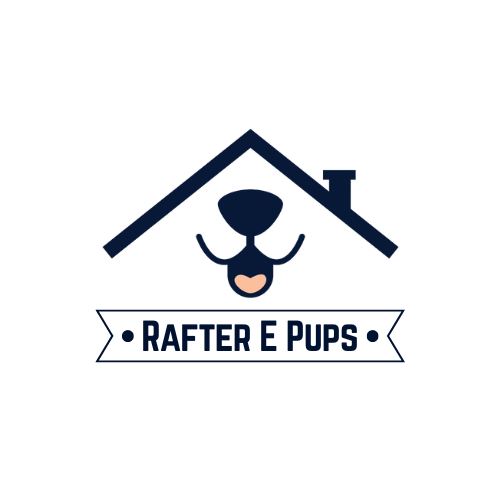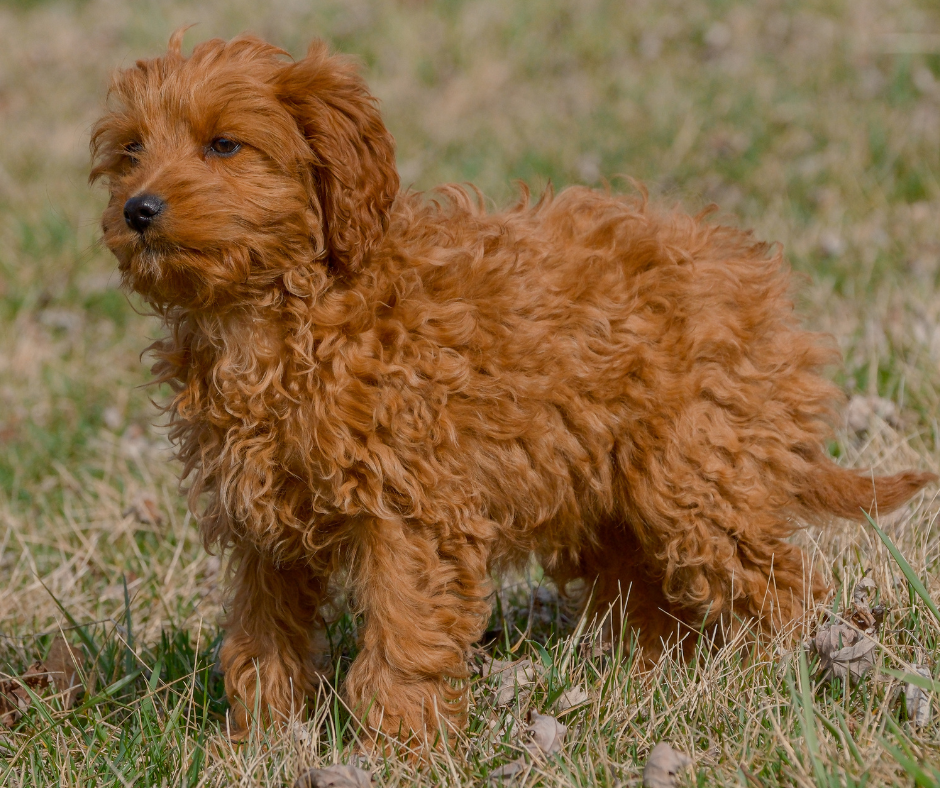Goldendoodles are one of the most popular and beloved crossbreeds in the canine world. These friendly and intelligent dogs are a cross between a Golden Retriever and a Poodle, and they come in various sizes, colors, and coat types. Goldendoodles are known for their playful and affectionate nature, making them wonderful companions for families and individuals alike. To ensure your Goldendoodle lives a long, happy, and healthy life, it's essential to provide them with proper care, nutrition, exercise, and attention.
To keep your Goldendoodle fit and healthy, focus on a well-balanced diet with high-quality dog food tailored to their age and size. Regular exercise, including daily walks and interactive play, is essential to maintain their physical health. Grooming should not be overlooked, with regular brushing and professional grooming appointments to care for their unique coat. Routine veterinary check-ups, vaccinations, and preventive care are crucial. Socialization and obedience training, along with affection and mental stimulation, contribute to their overall well-being. Remember that individual needs may vary, so consult with your veterinarian for personalized guidance in maintaining your Goldendoodle's fitness and health.
Understanding the Goldendoodle Breed
Before delving into the specifics of keeping your Goldendoodle fit and healthy, it's crucial to understand the breed's characteristics, including their physical and behavioral traits.
Goldendoodle Characteristics
Goldendoodles inherit traits from both Golden Retrievers and Poodles, resulting in a unique blend of features:
- Coat: Goldendoodles can have different coat types, including curly, wavy, and straight. Coat colors may vary widely.
- Size: Goldendoodles come in various sizes, ranging from mini to standard. Mini Goldendoodles are smaller, while standard ones are larger.
- Temperament: These dogs are typically friendly, intelligent, and social. They tend to get along well with children and other pets.
- Intelligence: Goldendoodles are highly intelligent, making them trainable and eager to learn.
Goldendoodle Dietary Needs
A proper diet is the foundation of your Goldendoodle's health. To keep them fit and thriving, you should:
- Provide a balanced diet: Choose high-quality dog food that meets your Goldendoodle's specific age, size, and activity level requirements.
- Portion control: Avoid overfeeding by following feeding guidelines and consulting with your veterinarian to determine the right portion size.
- Avoid harmful foods: Keep your Goldendoodle away from toxic foods like chocolate, grapes, onions, and garlic.
- Freshwater: Ensure your dog has access to clean, fresh water at all times.
Age and Life Stage Considerations in Feeding Your Goldendoodle
Goldendoodles go through different life stages, and their nutritional needs change accordingly:
- Puppy: Growing puppies require a diet rich in protein and essential nutrients to support their rapid development.
- Adult: Adult Goldendoodles need a well-balanced diet to maintain their health and energy levels.
- Senior: As your Goldendoodle ages, their dietary requirements may change. Consult with your veterinarian for guidance on senior dog food.
What Does Your Goldendoodle Need? Let’s Talk About Protein, Fat, and Carbohydrates
A Goldendoodle's diet should contain a balance of:
- Protein: Essential for muscle development and overall health.
- Fat: Provides energy and supports healthy skin and coat.
- Carbohydrates: A good source of energy, but they should be from whole grains and vegetables.
How to Choose the Right Commercial Dog Food for Your Goldendoodle
When selecting commercial dog food for your Goldendoodle, consider the following:
- Look for quality ingredients: The first few ingredients should be meat or meat meal, not fillers.
- Avoid artificial additives: Opt for foods without artificial colors, flavors, or preservatives.
- Consult your vet: Seek professional advice to choose the best food for your dog's specific needs.
Are Homemade and Raw Diets Ideal for Your Goldendoodle?
Some dog owners prefer homemade or raw diets for their Goldendoodles. If you choose this route, be sure to:
- Consult with a veterinary nutritionist to create a balanced diet.
- Use safe handling practices for raw food to prevent contamination.
- Be aware of the potential risks and benefits of raw feeding.
Exercise and Mental Stimulation for Your Goldendoodle
Goldendoodles are active and intelligent dogs that require both physical exercise and mental stimulation to stay fit and happy.
Physical Exercise
Regular physical activity is crucial for your Goldendoodle's health. Here are some exercise tips:
- Daily walks: Aim for at least 30-60 minutes of walking each day to keep your dog in shape.
- Playtime: Engage in interactive play, such as fetch or tug-of-war.
- Dog parks: Allow your Goldendoodle to socialize and burn energy at dog parks, if they are well-behaved around other dogs.
Mental Stimulation
Goldendoodles are intelligent dogs that thrive on mental challenges. Keep their minds active with:
- Puzzle toys: Invest in toys that dispense treats when your dog solves a puzzle.
- Obedience training: Teach your Goldendoodle new tricks and commands to keep their mind sharp.
- Interactive play: Hide and seek or scent games can engage your dog's mental faculties.
Goldendoodle Grooming and Hygiene
Proper grooming and hygiene practices are essential to your Goldendoodle's well-being. Their unique coat requires special attention.
Goldendoodle Coat Care
Goldendoodles have varying coat types, which can be wavy, curly, or straight. Coat care includes:
- Regular brushing: Brush your Goldendoodle's coat at least a few times a week to prevent matting and tangles.
- Professional grooming: Schedule regular grooming appointments to maintain the coat's health and appearance.
- Bathing: Bathe your Goldendoodle as needed, typically every 4-6 weeks.
Ear and Dental Care
Don't forget to care for your Goldendoodle's ears and teeth:
- Ear cleaning: Check and clean their ears regularly to prevent infections.
- Dental hygiene: Brush your dog's teeth regularly to prevent dental issues.
Healthcare and Veterinary Visits for Your Goldendoodle
Regular health check-ups are vital to your Goldendoodle's fitness and well-being. In this chapter, we'll cover important healthcare considerations.
What is the Importance of Vaccinations and Preventive Care
Ensure your Goldendoodle is up-to-date on vaccinations and preventive treatments, including:
- Core vaccines: Vaccinations against diseases like rabies and distemper are essential.
- Flea and tick prevention: Protect your dog from parasites with appropriate medications.
- Heartworm prevention: Use preventive measures to guard against heartworm disease.
Why is Spaying or Neutering Your Goldendoodle Essential?
Discuss spaying or neutering with your veterinarian to determine the right time and approach for your Goldendoodle.
Common Health Issues
Goldendoodles are generally healthy dogs, but they may be prone to certain breed-specific health issues. These can include:
- Hip dysplasia: Monitor your dog's hip health and seek treatment if necessary.
- Ear infections: Keep an eye on ear cleanliness to prevent infections.
- Allergies: Be aware of common allergens that might affect your Goldendoodle.
Socialization and Training
Proper socialization and training are essential for your Goldendoodle's well-rounded development.
Why is Socializing Your Goldendoodle Important?
Socialize your Goldendoodle from an early age to ensure they are well-adjusted and comfortable in various situations:
- Exposure to different people, animals, and environments.
- Positive interactions with other dogs and people.
- Gradual exposure to new experiences to prevent fear or anxiety.
How Can Obedience Training Help Your Goldendoodle?
Training your Goldendoodle is not just about basic commands; it's about building a strong bond and ensuring their safety:
- Basic commands: Teach commands like sit, stay, and come.
- Positive reinforcement: Use positive reinforcement techniques to encourage good behavior.
- Consistency: Maintain a consistent training routine.
Mental Health and Well-being
Goldendoodles thrive on love and attention. In this chapter, we'll explore ways to ensure your dog's mental health and happiness.
Affection and Bonding
Show your Goldendoodle plenty of love and affection through:
- Cuddling and petting: Physical affection strengthens the bond between you and your dog.
- Quality time: Spend time together doing activities your dog enjoys.
- Positive reinforcement: Reward good behavior with praise and treats.
Recognizing Signs of Stress in Your Goldendoodle
Pay attention to your Goldendoodle's behavior and body language to identify signs of stress, anxiety, or discomfort:
- Panting excessively.
- Whining or barking excessively.
- Hiding or withdrawing.
Keeping your Goldendoodle fit and healthy involves a combination of proper nutrition, exercise, grooming, healthcare, and socialization. By following the guidelines outlined in this comprehensive guide, you can ensure that your Goldendoodle lives a long, happy, and healthy life. Remember that each dog is unique, so always consult with your veterinarian for personalized advice and care tailored to your Goldendoodle's specific needs. With the right care and attention, your Goldendoodle will be a loyal and joyful companion for years to come.

